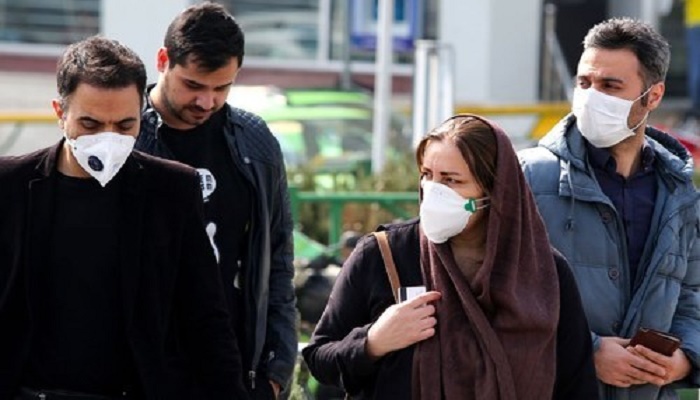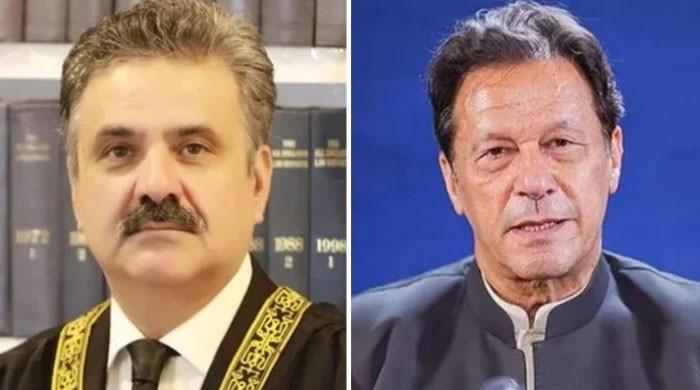Medical experts urge government to provide virus patients tele-consultations
Tele-consultations will help patients monitor symptoms, take appropriate precautionary measures
May 09, 2020

KARACHI: Expressing serious concern over dozens of unexplained deaths of asymptomatic COVID-19 patients in home isolation in Sindh, local and foreign health experts have advised the government to provide tele-consultation to the patients in home isolation on a regular basis.
According to a report published in The News on Saturday, the experts also asked the patients and their family members to closely monitor their condition, and in case their health deteriorated, to immediately rush to a nearby tertiary-care hospital.
According to the experts, every unexplained death should ideally be investigated by the authorities, and in case of COVID-19 patients who had died in home isolation, post-mortem examinations on their bodies should be carried out to ascertain the actual cause of death.
Also read: Leading British-Pakistani cancer specialist loses life to COVID-19 in UK
'Patients hesitating to seek medical help'
They said such patients died after suffering from strokes, lung collapse and heart attacks, which could be averted in other patients by providing them appropriate treatment. Sindh Health Minister Dr Azra Pechuho also urged the COVID-19 patients to approach isolation centres.
As many as 60 COVID-19 patients, including 52 in Karachi alone, who had isolated themselves at their homes on medical advice, have died at their residences during the last 50 days in Sindh, officials said, adding that most of these patients had either no or mild classic symptoms of virus.
Many of them could be patients of diabetes, hypertension, cardiovascular disease and other underlying health conditions, officials added. “It is has been observed that COVID-19 patients are hesitating to seek medical help, fearing problems for their family members," an official said.
Also read: Pakistani doctors most affected by coronavirus among healthcare workers: WHO report
'Patients should not be afraid of disease'
“Patients should not be afraid of this disease and also not be worried about their family members. In case of shortness of breath or any other health condition, they should seek medical help,” said Javaid Khan of the Aga Khan University Hospital in Karachi.
Khan maintained that there was fear in many people about hospitals and they felt that they would not get appropriate care at the health facilities. “Another reason behind people delaying seeking medical help is the fear that what would their neighbours think of them," Khan added.
He said any person quarantined at home should follow one simple advice. “Buy a pulse oximeter which costs just Rs1,000 to 1,500 and check oxygen saturation at home after every few hours. Any COVID-19 patient with saturation below 90 per cent must rush to a hospital. Otherwise, if saturation is fine, they need not worry.”
Also read: Doctors conduct 'successful' plasma therapy trial on Hyderabad coronavirus patient
'Virus patients should monitor temperature'
Another health specialist Dr Usman Ghani, who is a consultant stroke physician at University Hospital of Coventry & Warwickshire, United Kingdom, said the unexplained sudden deaths of COVID-19 patients in home isolation were a serious issue.
“Cardiac conditions (heart attacks, heart failure, arrhythmias) and large stroke are serious complications along with PE (pulmonary embolism/blood clot in lungs) of COVID-19 which can lead to a sudden death. In several countries of the world, young and healthy people having coronavirus infection collapsed suddenly and died,” Ghani said.
To a query as to what should be done by the COVID-19 patients in home isolation, he said they should closely monitor their temperature and oxygen saturation. “You can buy a pulse oximeter online. If persistent cough or temperature keeps on spiking after three to four days, the patient needs to be checked at a hospital for chest x-ray and oxygen levels along with complete blood picture,” he added.
Originally published in The News











